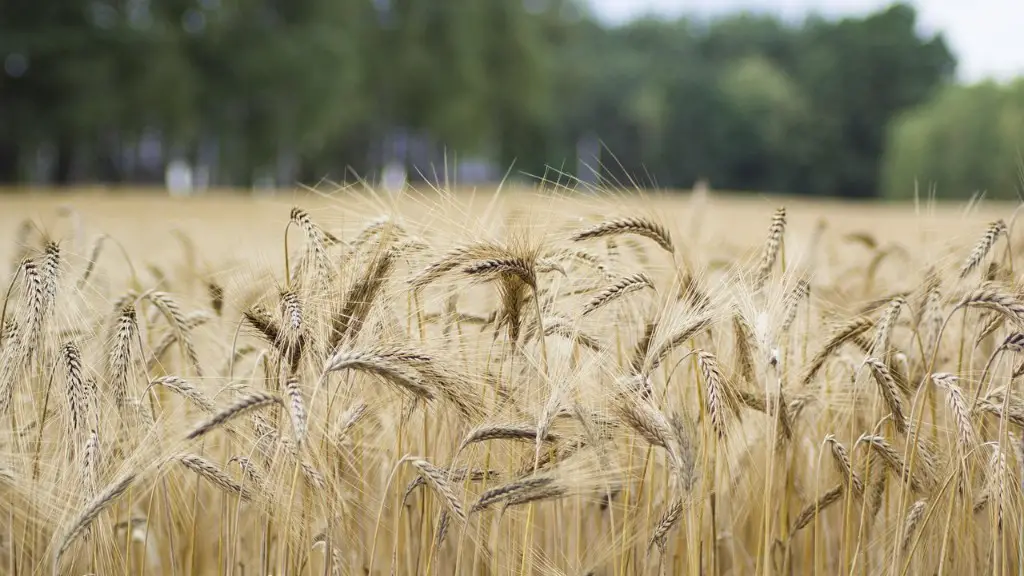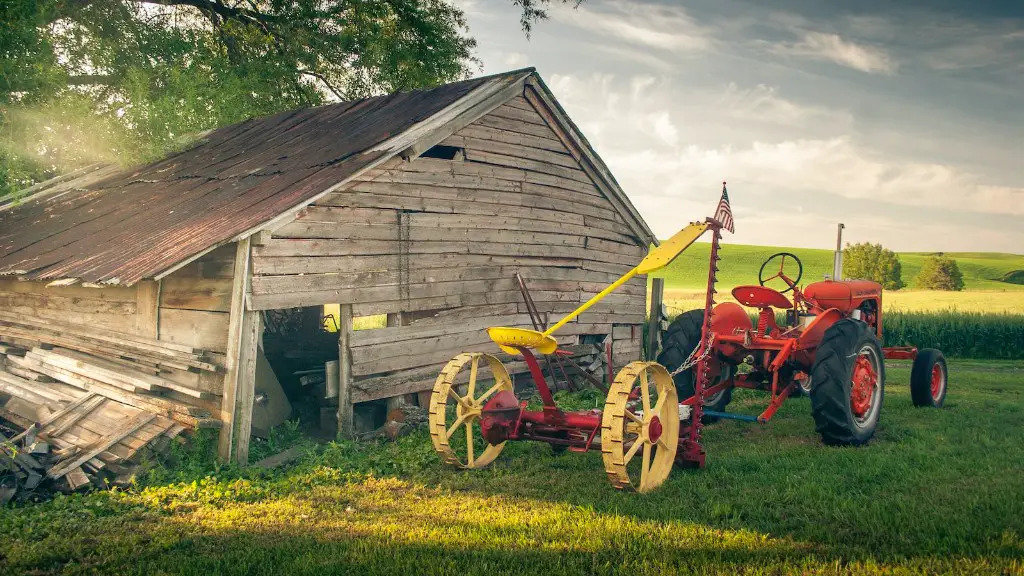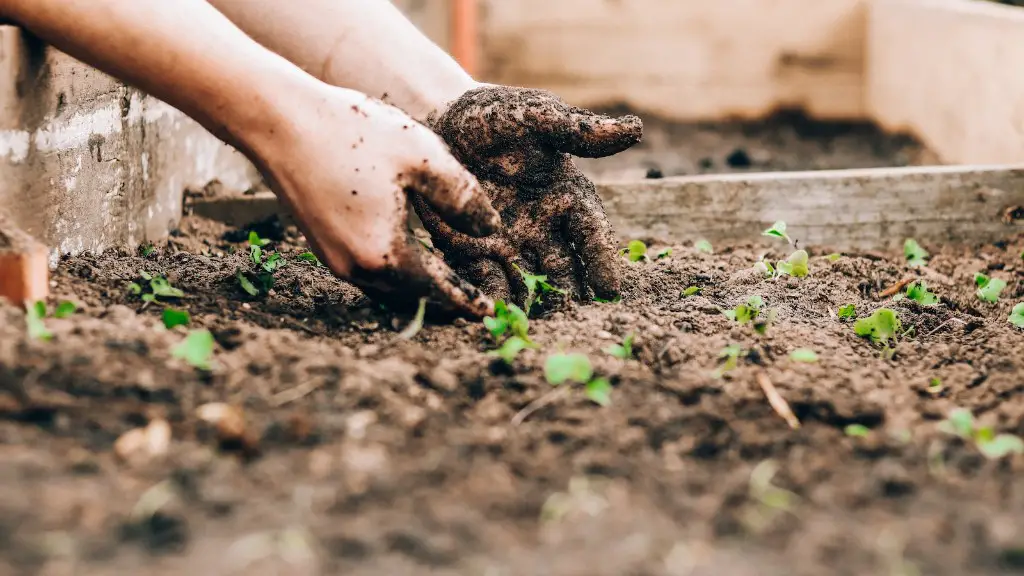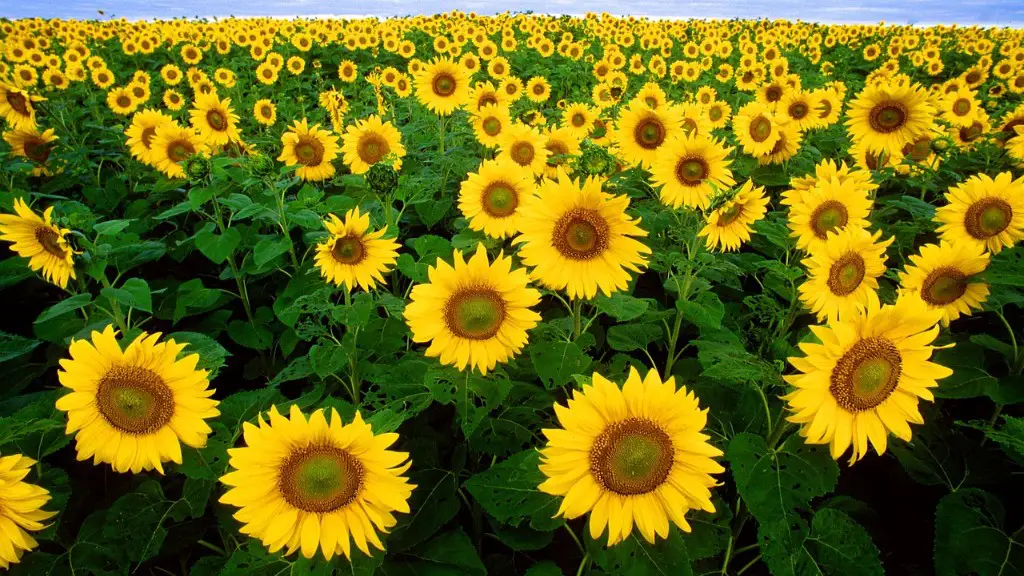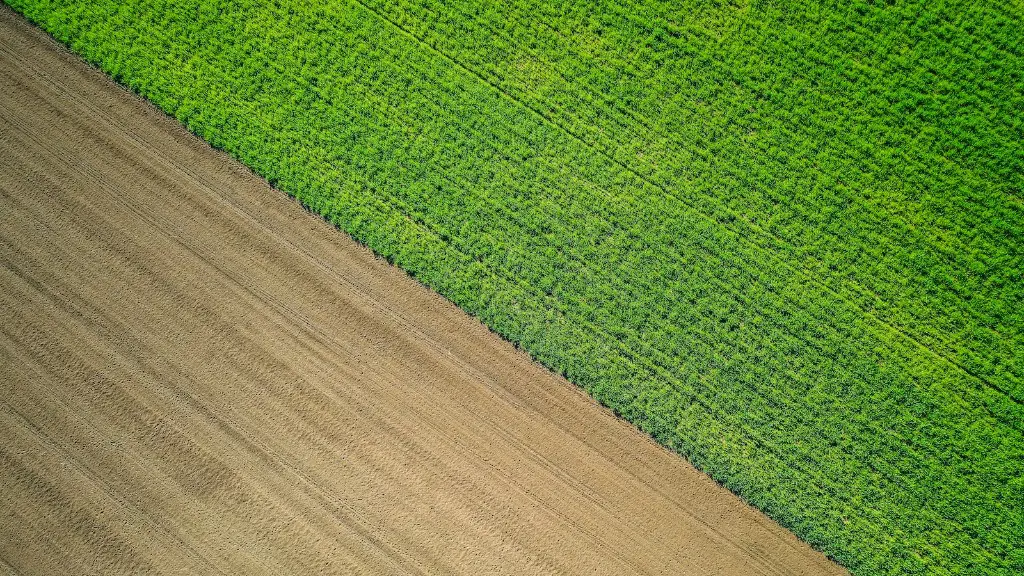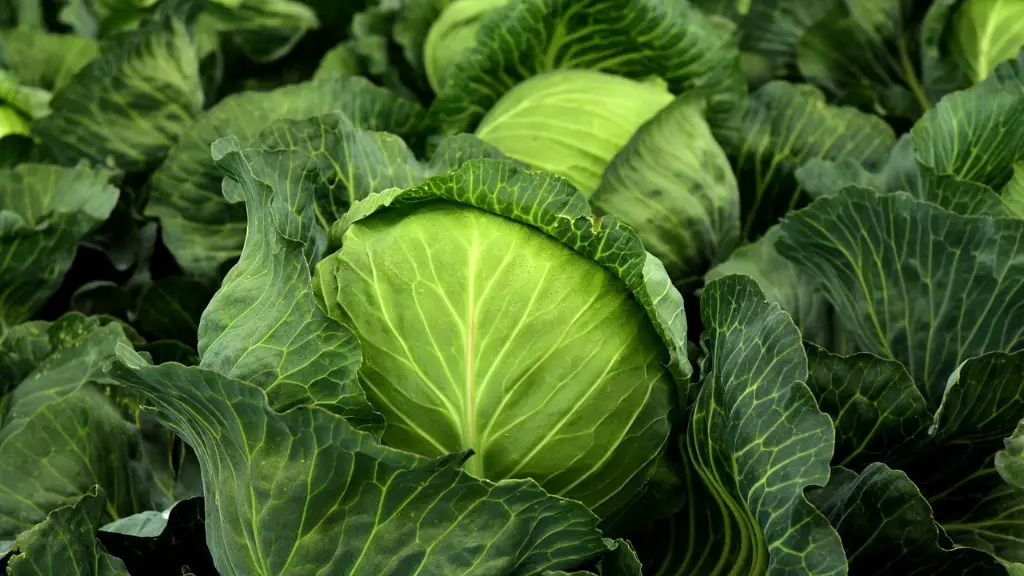There are many reasons why we use traditional agriculture. For one, it is a tried and true method of farming that has been used for centuries. It is also a very efficient way to farm, and can yield a large amount of food with minimal inputs. Traditional agriculture is also very sustainable, and can be used to create a self-sufficient farm system.
There are many reasons why people use traditional agriculture. For some, it is a way to stay connected to their cultural heritage. For others, it is a way to produce food in a natural and sustainable way. Traditional agriculture can also be less expensive and more labor-intensive than other methods of food production.
What are the benefits of using traditional methods in agriculture?
Traditional farming methods are still in use and are popular among farmers because they provide cultural and ecological services to human beings. These methods have helped in protecting natural resources, biodiversity maintenance, and enhanced food security.
There are a few key ways in which modern and traditional agricultural methods differ. First, modern methods tend to emphasize production, capital gain, and input intensity, while traditional methods prioritize localization, biodiversity, and shared genetic resources. Additionally, modern agriculture often relies on a more consistent crop, while traditional agriculture values a diversity of crops.
Each type of agriculture has its own advantages and disadvantages. Modern methods tend to be more efficient and produce more food, but they can be less sustainable. Traditional methods are often more environmentally friendly, but they may not be as productive. Ultimately, the best approach depends on the specific context and goals of the farmers.
How does traditional agriculture affect the environment
Agriculture is the leading source of pollution in many countries. Pesticides, fertilizers and other toxic farm chemicals can poison fresh water, marine ecosystems, air and soil. They also can remain in the environment for generations.
Toxic farm chemicals can enter the food chain and bioaccumulate in animals, causing health problems in both animals and humans. They can also cause birth defects and other health problems in humans.
Many countries have regulations to try to control the use of toxic farm chemicals, but enforcement is often lax. In addition, many farmers are not aware of the potential risks of these chemicals.
To reduce the pollution caused by agriculture, farmers need to be better educated about the risks of toxic farm chemicals and the proper way to use them. Enforcement of regulations needs to be improved, and farmers need to be incentivized to use less toxic chemicals.
Traditional farming is a type of farming that is more traditional and often uses indigenous knowledge. This type of farming often uses traditional tools, natural resources, and organic fertilizer. It also often relies on the cultural beliefs of the farmers.
What are the advantages of traditional method?
There are many advantages of traditional project management methodology. Some of them are listed below:
1. Cost Effective: Traditional project management is cost effective as compared to other project management approaches.
2. Suitable for Remote Projects: Traditional project management methodology is suitable for managing remote projects.
3. It’s Sequential: Traditional project management methodology is sequential in nature. This means that each phase of the project is completed before moving on to the next phase.
4. Quick Time Around: Traditional project management methodology has a quick turnaround time. This is because all the phases of the project are completed in a linear fashion.
5. Optimization of Customer’s Satisfaction: Traditional project management methodology optimizes customer satisfaction. This is because all the deliverables are of high quality and meet the customer’s expectations.
6. Responsible for the Quality Deliverable: Traditional project management methodology is responsible for the quality of the deliverables. This is because all the deliverables are checked and approved by the project manager before they are delivered to the customer.
7. No Training is required: Traditional project management methodology does not require any training. This is because all the phases of the project are well-defined and easy to understand.
Agriculture is one of the main contributors to environmental degradation. Some of the issues that it causes include climate change, deforestation, biodiversity loss, dead zones, genetic engineering, irrigation problems, pollutants, soil degradation, and waste.
Climate change is one of the biggest problems that agriculture contributes to. The greenhouse gases emitted by agriculture are a major contributor to global warming. Deforestation is another major issue caused by agriculture. The clearing of forests for agricultural purposes is a major driver of deforestation and loss of biodiversity. Additionally, agriculture can lead to dead zones in the ocean from the runoff of nutrients and pollutants.
The use of genetic engineering in agriculture is also controversial. Many people believe that it is unsafe and poses a risk to the environment. Additionally, irrigation for agriculture can lead to water shortages and pollution. Soil degradation is also a major problem caused by agriculture, as the overuse of land can lead to soil depletion and loss of fertility. Finally, agriculture generates a lot of waste, which can pollute the environment.
Why is traditional farming better than organic?
Both conventional farming and organic farming have their pros and cons. However, each type of farming has a different goal. Conventional farming’s goal is to ensure food security, even if that can be achieved through genetically modified organisms (GMOs). On the other hand, organic farming or modern farming relies on sustainable ways of growing crops. These techniques are farm-focused, improving the natural fertility of the farm.
Organic agriculture is a more sustainable option than conventional agriculture, with a smaller carbon footprint, increased soil health, and cleaner water and air. However, conventional agriculture still causes increased greenhouse gas emissions, soil erosion, and water pollution, and is a threat to human health.
What are the benefits of traditional crops
Organic crops are grown without the use of synthetic fertilizers, making them purer than those grown with the use of chemicals. Because of this, organic crops can be sold at a premium price as they are seen as being more natural and healthier. Additionally, the waste from organic crops can be used as a natural fertilizer after it has decomposed, making it a more sustainable option overall.
There are pros and cons to both modern and traditional agricultural practices. Modern agricultural practices emphasize production, capital gain, input intensity and crop consistence. This can lead to larger yields and more profits, but can also lead to environmental degradation and a loss of biodiversity. Traditional agricultural practices emphasize localization, biodiversity, shared genetic resources and a cultural appreciation for many different crops. This can lead to a more sustainable and environmentally friendly system, but can also lead to lower yields and profits.
What are features of traditional agriculture?
Traditional agriculture is a primitive form of farming that uses indigenous knowledge, traditional tools, natural resources, and organic fertilizers. Traditional agriculture is often associated with small-scale farming, which is characterized by low inputs and output, and a reliance on traditional methods.
Over time, traditional farming practices have given way to modern methods that are more efficient and yield better results. However, in India, the monsoon season is essential for traditional agriculture, as it is the only time of year when pesticides and chemical fertilizers can be used.
What is the purpose of traditional approach
This type of approach to bullying usually involves creating and enforcing clear rules against bullying behavior, as well as consequences for breaking those rules. These consequences typically involve some form of punishment for the student who is considered responsible for the bullying.
The traditional approach to computing was simple and straightforward: it matched existing business processes and functions, and didn’t try to do anything too complicated. This made it easy to implement and relatively low-cost. However, it also meant that early computing systems were not particularly beneficial to businesses, and so they were not willing to invest large amounts of money in them. As a result, traditional systems were designed to be cheap and easy to use, rather than powerful and feature-rich.
What is the disadvantage of traditional agriculture?
The modern farming industry has come under fire in recent years for its reliance on traditional methods that are both inefficient and environmentally damaging. These methods include monoculture crops, the use of synthetic fertilizers and pesticides, and the overuse of water resources.
While traditional farming methods may be the status quo, they are not without their problems. These methods are often inaccessible to small-scale farmers and pose a risk to the environment due to urbanization, deforestation, lack of space, and water shortages around the world.
In order to create a more sustainable and accessible food system, we need to move away from traditional farming methods and towards more modern, sustainable approaches. This includes supporting small-scale farmers, using more efficient irrigation methods, and diversifying our food sources.
It is true that traditional foods are usually more balanced and, as a result, more nutritious than the food people eat now. The good proportion of healthy fat, carbs and fibre in traditional foods help to make them more nutrient-dense and thus more beneficial for our health.
Warp Up
There are many reasons why people continue to use traditional agriculture. For some, it is a way to stay connected to their culture and heritage. For others, it is a more sustainable and environmentally friendly way to produce food. Traditional agriculture can also be more resilient to climate change than industrialized farming.
Traditional agriculture is a time-honored practice that has been employed by humans for millennia. It is a sustainable and efficient way to produce food, using techniques that are in harmony with nature. Traditional agriculture is also a way to connect with our ancestors and the land that sustains us.
